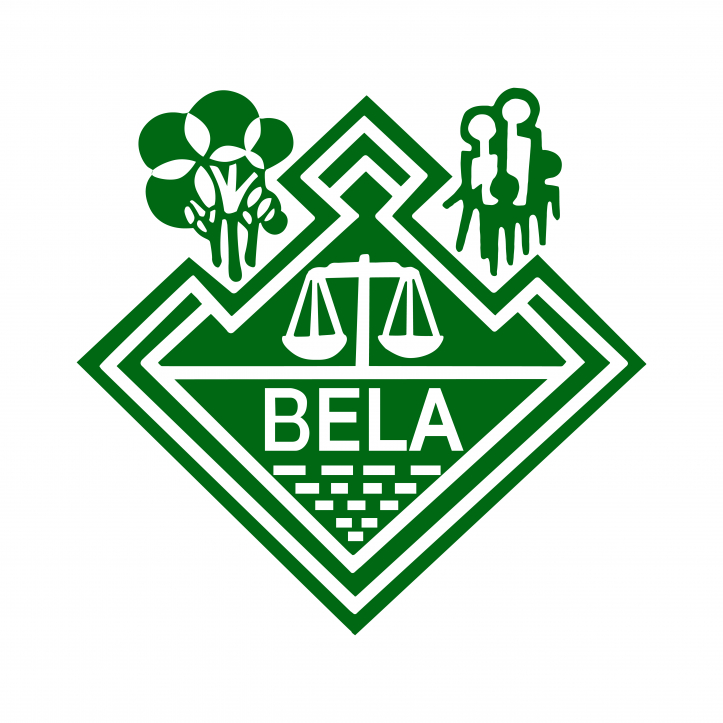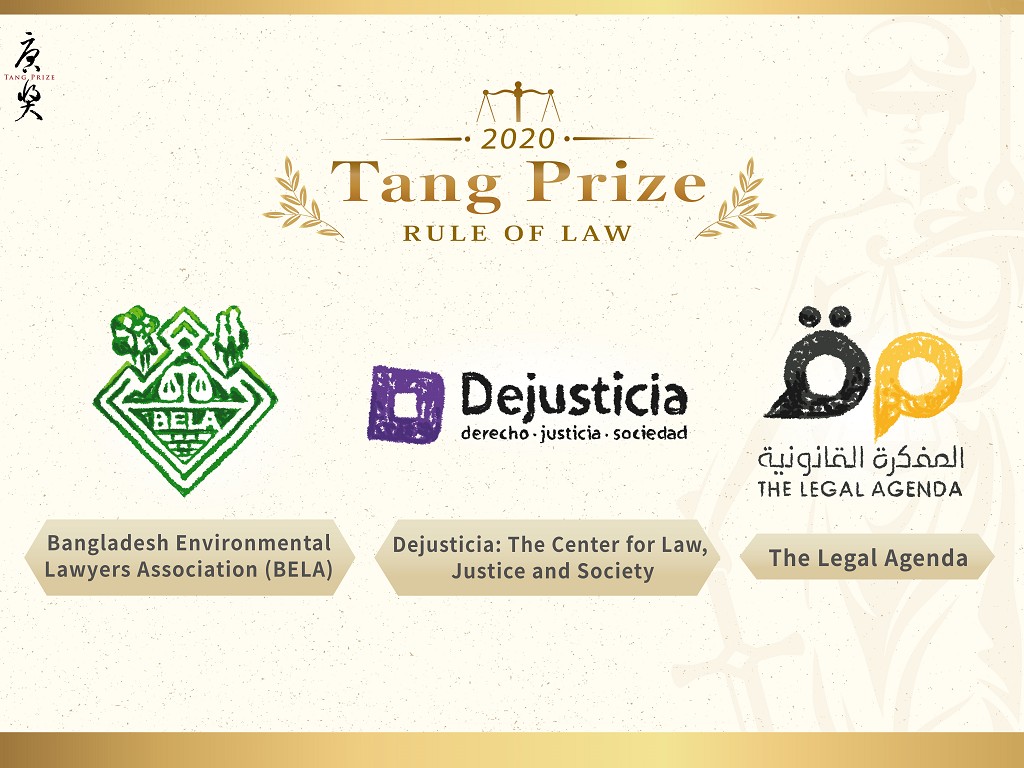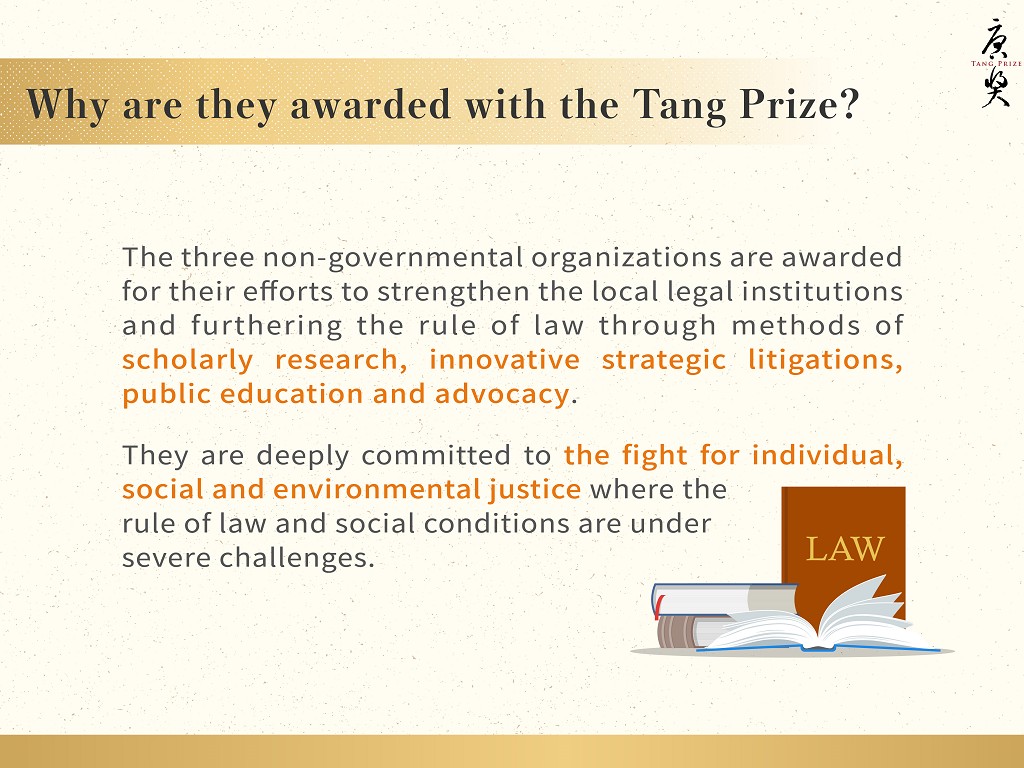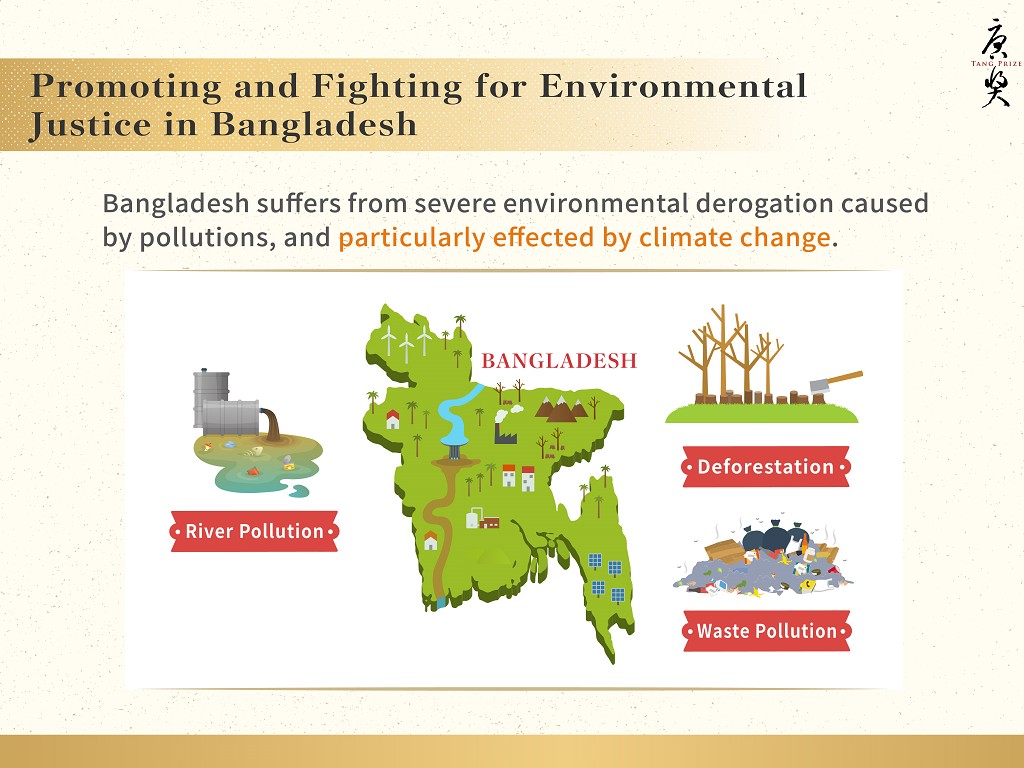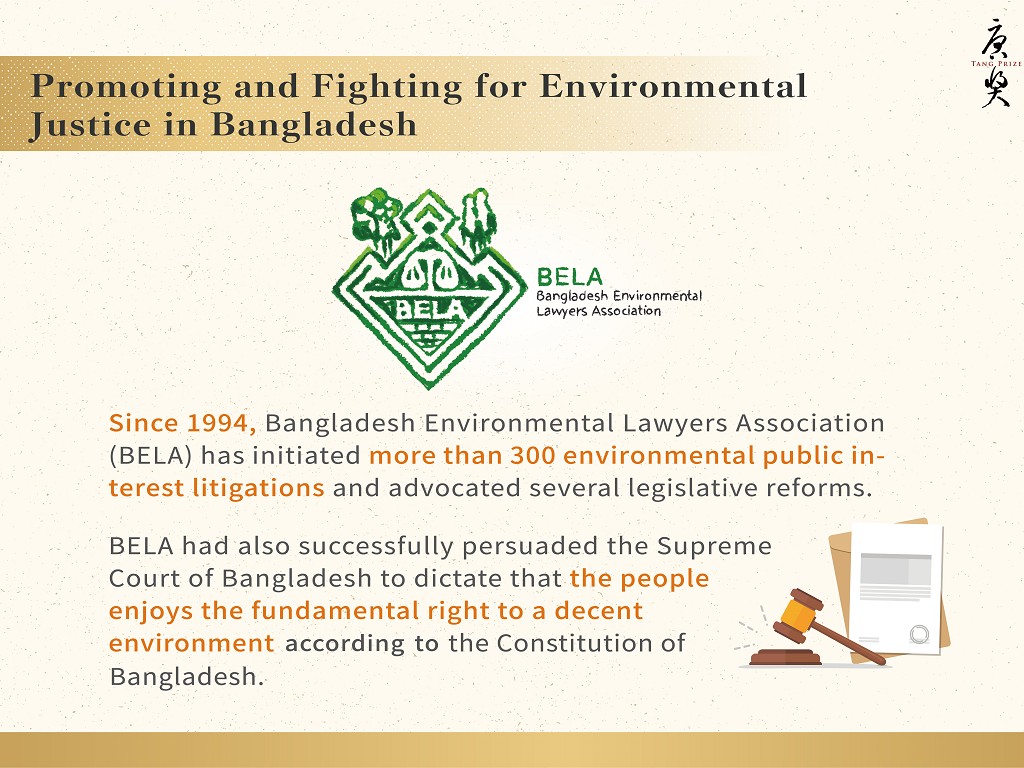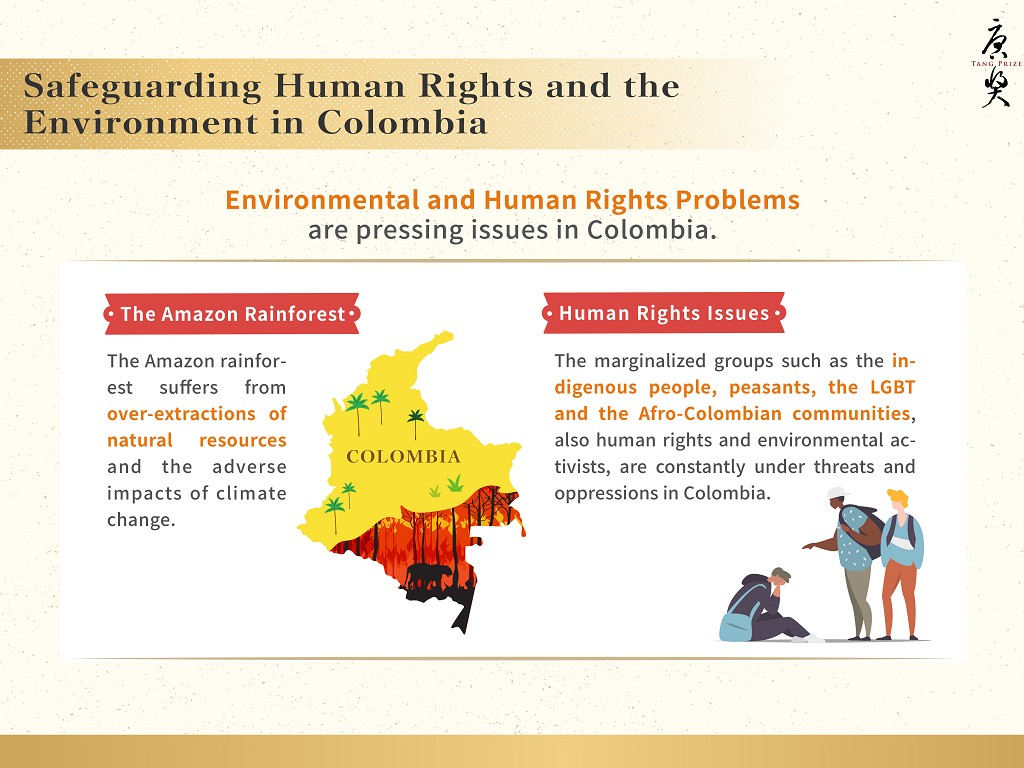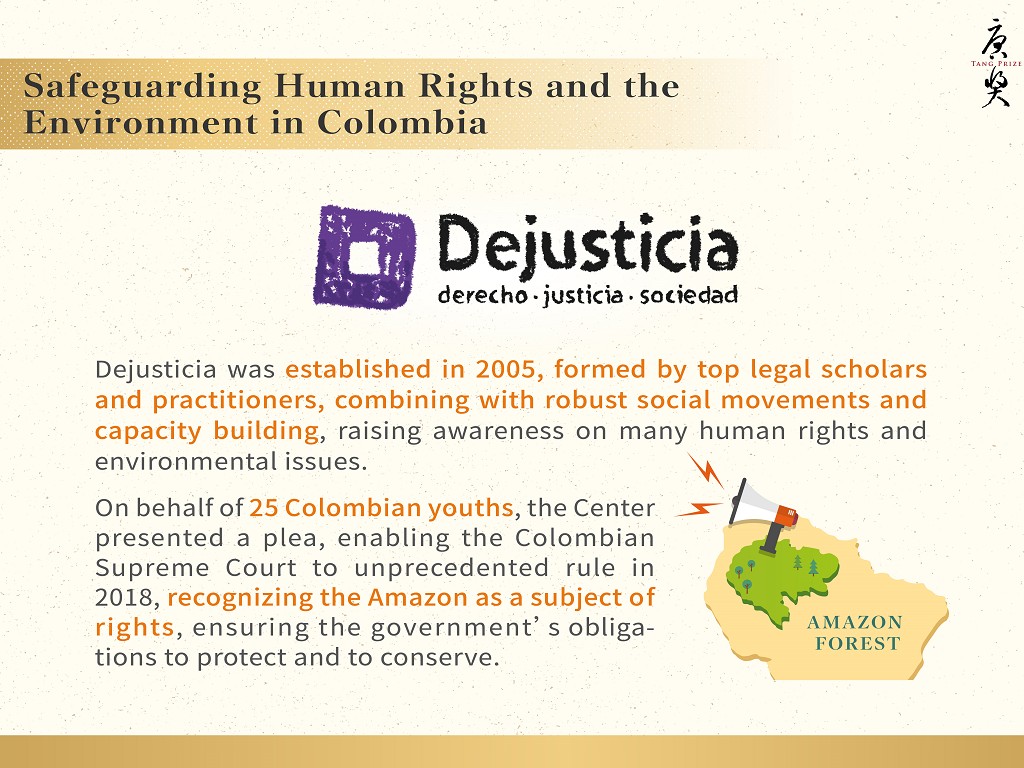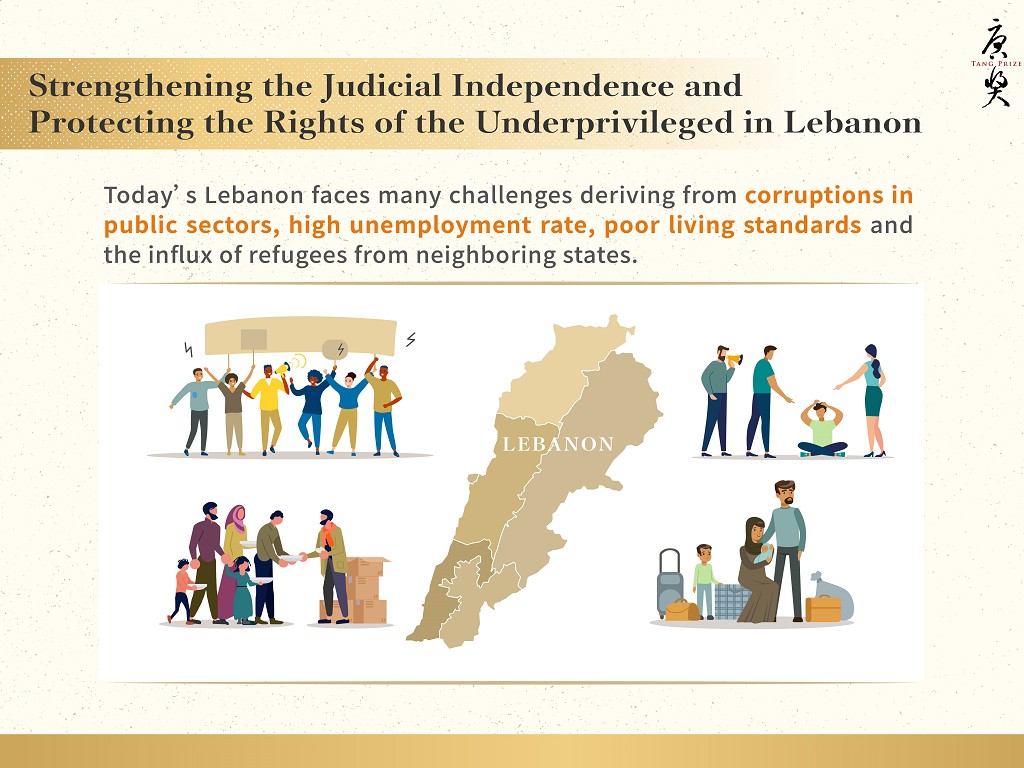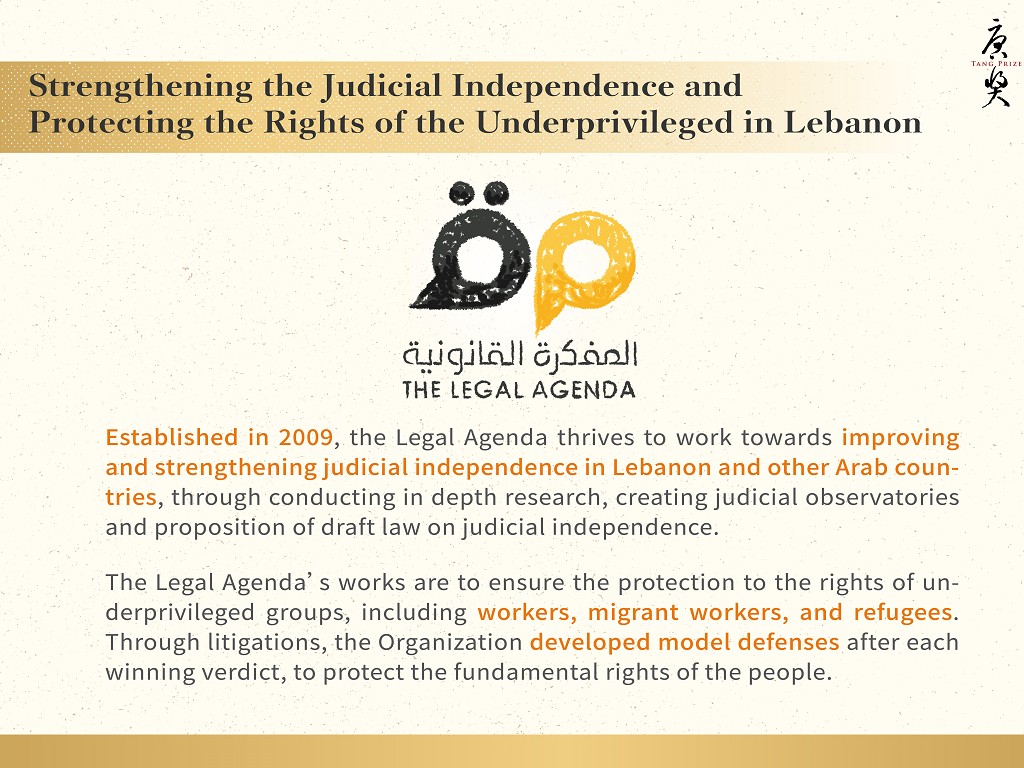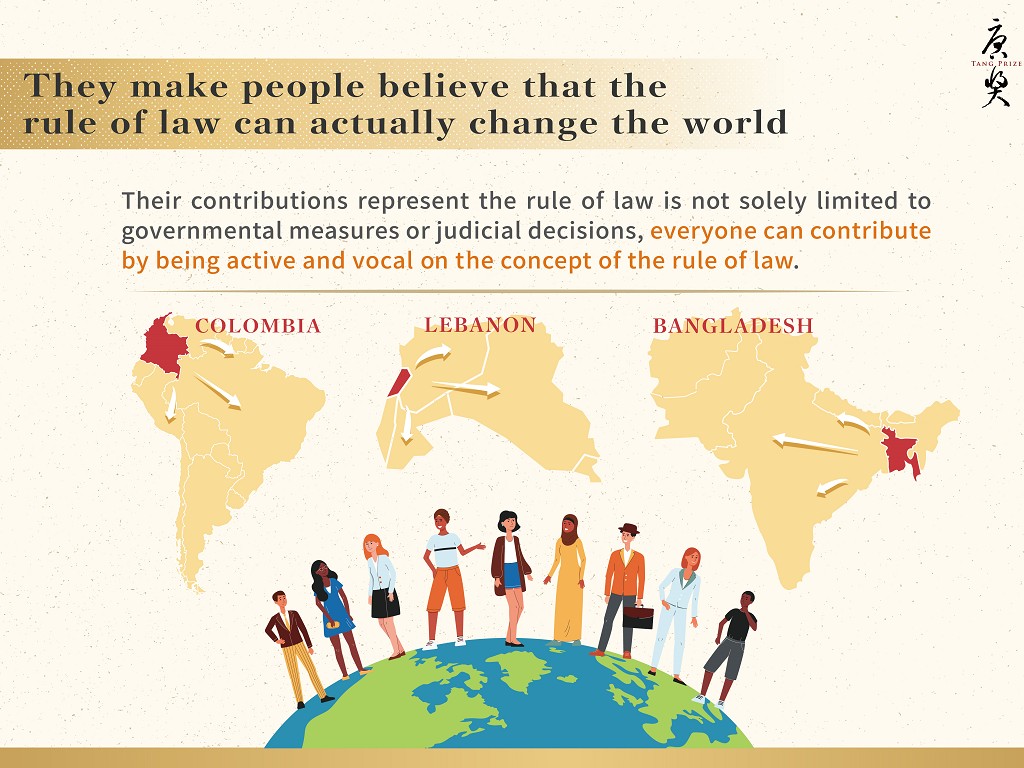The 2020 Tang Prize in Rule of Law is jointly awarded to Bangladesh Environmental Lawyers Association (hereinafter “BELA”), Dejusticia: The Center for Law, Justice and Society (hereinafter “Dejusticia”) and The Legal Agenda.
Each of the three non-governmental organizations are situated in milieus where the foundation of the rule of law are facing severe challenge from a multiple of sources, including human rights infringements, degradation of the integrity of the environment that poses threats to human lives, health and livelihood, and many inadequacies in the very basic infrastructure of the rule of law such as fundamental freedoms and judicial independence. In those circumstances, these three organizations, founded by lawyers with solid academic training, strive for furthering the rule of law and its institutions through education and advocacy by coordinating forces in the civil society. One of the highlighted areas shared by the three organizations is the strategic litigations they initiated, backed by innovative reading of the constitution and statutes informed by rigorous scholarship, in order to protect the rights of the vulnerable as well as to promote the individual, social and environmental justice. In the course, the three organizations made remarkable contributions in advancing the general public’s understanding of the rule of law through education and advocacy, thus promoting people’s awareness of rights and realizing the application of law in social life.
Established in 1992 by Dr. Mohiuddin Farooque, BELA has been devoted itself to promoting environmental justice and developing sound environmental jurisprudence in Bangladesh. BELA’s contribution dazzles against the poor environmental quality and a corruptive government in its country. Against this background, BELA promotes the rule of law and environmental justice through public interest litigation, advocacy, research and publication, as well as capacity-building for actors in the public sector and civil society.
Ever since the first public-interest case, Dr. Mohiuddin Farooque v. Bangladesh & Others in 1994, BELA has initiated more than 300 public interest litigations and advocated for legislative reform for environmental justice. Issues drawn within its ambit ranged as widely as river pollution, industrial pollution, vehicular pollution, illegal construction, labor welfare, illegal mining, prevention of soil erosion, reduction of plastic use, wetland protection and prevention of pollution from shipbreaking. By successfully persuaded the court to recognize its standing to instigate a case on behalf of people affected by environmental degradation, BELA successfully break a path for public interest litigation. It also moved the courts to extend the fundamental right to life to cover the right to a decent environment under the Constitution. BELA’s continuous focus on environmental public litigation makes it the gear of legal enforcement of environmental law, which has been shedding light not solely on the nascent legal system of its country but to the rule of law and environmental justice of the global community.
Founded in 2005, Dejusticia is a Colombia-based research and advocacy organization, which has made important contributions to the rule of law through its relentless campaign. Dejusticia takes a distinctive “amphibious approach” that efficiently combines rigorous academic research with energetic social action on human rights issues. Indeed, its founders included leading scholars who are deeply committed to social change through activism informed by research. Dejusticia aims to strengthen the rule of law through litigations, notably filing and winning landmark cases concerning sensitive issues such as anti-discrimination (race and gender), indigenous peoples’ rights, the rights of refugees, transitional justice, and environmental degradation in Colombian Courts, as well as in international legal forums across Latin America. In doing so, Dejusticia empowers the vulnerable and advances better protect of human rights and environmental justice.
Since its establishment in 2009, The Legal Agenda has successfully strengthened judicial independence and the rule of law in Lebanon, through a multidisciplinary approach that extends to researching, monitoring the function of judiciary, advocating for legislative change and promoting societal fabric in support of judicial independence. It spoke for the marginalized groups and achieved major legal precedents to advance the legal protection for migrant workers, refugees, LGBT groups, and family of victims of enforced disappearances. To empower their legal defense, the Legal Agenda developed model defenses for cases impacting on these groups. It has also done significant work in promoting social awareness of the protection of rights and the rule of law. Its pioneering approach expanded beyond Lebanon to other Arab countries, notably Tunisia.
For the above reasons, the 2020 Tang Prize in Rule of Law is jointly awarded to BELA, Dejusticia and The Legal Agenda for their efforts in furthering the rule of law and its institutions through education and advocacy. Utilizing innovative strategic litigation, reinforced by rigorous scholarship, these organizations have demonstrated exemplary perseverance in promoting greater individual, social and environmental justice, in milieus where the foundations of the rule of law are under severe challenge.
